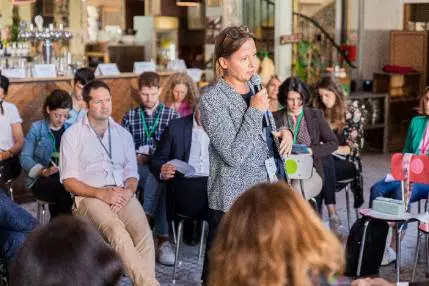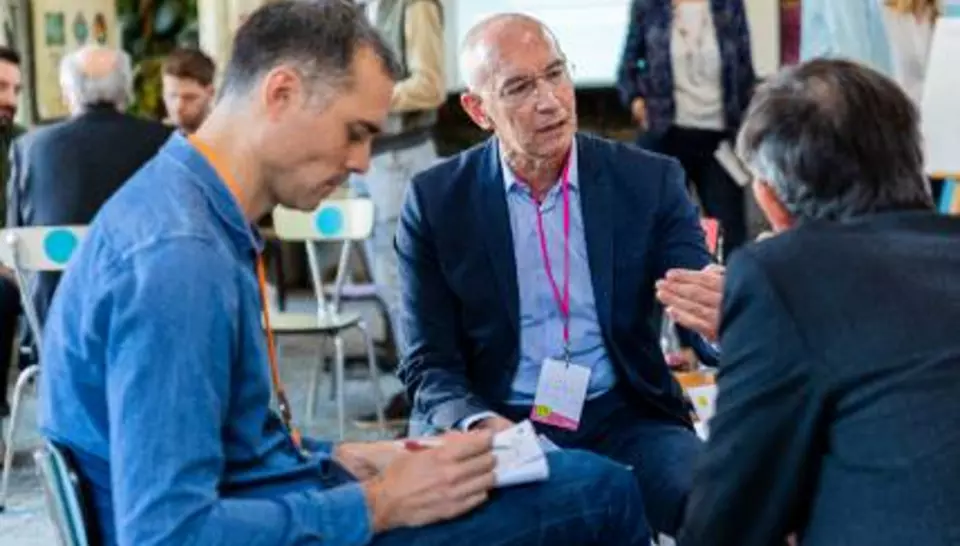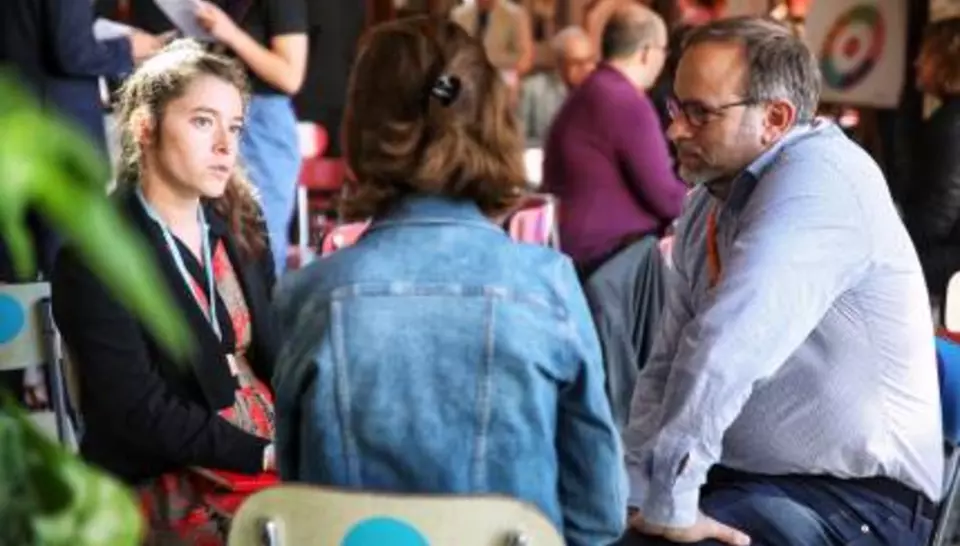On Tuesday 28 June, the +1 collective launched its 2022 cycle on the theme of "opening up the governance of companies and organisations to their stakeholders", with a first working session dedicated to the territorial resilience of the territories. This session allowed the collective to explore the issues of governance and the solutions to be implemented to foster territorial resilience and ecological transformation. Extract from the main exchanges of the collective meeting at La REcyclerie.
Rethinking governance at the territorial level...
If we want to implement the ecological transformation, it is no longer a question of what we should do, but how to do it faster and at all levels. For this to happen, we must rethink our methods of organisation and governance.
For Fanny Demulier, coordinator of Veolia's purpose steering committee, "ecological transformation will only be achieved at the local level by relying on the resilience of the territories."
"Stakeholders have to deal with many local impacts such as floods and droughts," added Matthieu Auzanneau, director of the Shift Project.
... Because crisis has become our daily life
Crisis now encompasses multiple issues: health, environmental, economic and geopolitical.
"For the past two years, we can ask ourselves whether crisis hasn't become our daily life", said Nicolas Beaurez, head of the Resilience-Transitions-Climate mission at Cerema.
Anne Le Guennec, CEO of France Waste Recycling & Recovery Solutions Zone, stressed the importance of the "ecosystem" assessment at the territorial level. For example, "waste management must take into account the sorting carried out by citizens, territorial policies and the goods produced by local manufacturers. " We need to assess the different needs of the territories, whether they are strategic supplies for some, or energy produced from waste, such as biogas, for others.

For Pierre-Yves Pouliquen, Veolia's Director of Multifaceted Performance and Sustainable Development the growing pressure on water resources will lead to conflicts of use that will favour the reuse of wastewater, to the benefit of all stakeholders.
Fostering dialogue with the fishbowl collective intelligence method
Guided by bluenove, a specialist in collective intelligence methods, the participants, divided into groups from three different stakeholders (from among Employees, Customers, Shareholders, representatives of Society and of the Planet), shared their experiences and good practices of cooperation for the resilience of territories. They then experimented with the fishbowl method, which consists of creating a conversation by the successive construction of ideas with all the members of the collective spread out a circle: five participants, one for each stakeholder category, located in the centre of the circle, speak, and are then regularly replaced by other members of the circle who speak in turn.
Ideas are mutually enriching:
- A reward system (financial or not) could encourage participation in collective decisions at the territorial level. For Claudia Thévenet, business manager - Product Recovery Unit at the Ile-de-France Industrial Waste Centre, "we have to make ecological transformation desirable in order to project ourselves in a positive way."
- Olivier Eugène, Head of Climate at investor Axa Investment Managers, warned: "For Axa, Veolia or Total, there are difficult investment choices to be made today. Should oil be stopped? And in what time frame? "
- ”Life has a value that can be quantified in euros" said Philippe Hermann, director of sustainable finance at Veolia.
Stay tuned: an ecological transformation booklet on territorial resilience will be published soon.
Follow the next sessions of the +1 collective:
Theme: What governance of companies and organisations for ecological transformation:
- Tuesday 27 September: session #2 to accelerate and amplify innovation?
- Tuesday 29 November: session #3 for employment and inclusion?
For more information
> The “+1, the ecology turned into actions” is a consultation mechanism initiated by Veolia, in partnership with Usbek & Rica, bluenove, and “La REcyclerie”, supported by Comité 21.
> An approach of shared progress with and for our stakeholders
> “+1, the ecology turned into actions” is growing locally and is poised to expand




